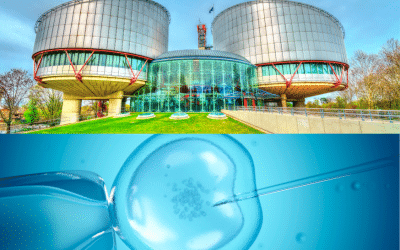The OPECST (Parliamentary Office for Scientific and Technological Assessment) held a public hearing on Thursday, April 7 at the French National Assembly on the challenges of new biotechnologies possible with genome-targeted modification using CRISPR-Cas9.
This hearing, which has a rich and dense program, gave the opportunity to numerous experts to inform the public: scientific executives from industrial backgrounds, professors, doctors, researchers, political analysts…
The first two round table discussions focused on “technological breakthroughs” made possible by CRISPR-Cas9 and the potential gene therapy applications for human beings. Numerous research studies have already been launched, and as specified by some speakers, these studies which are still at the experimental stage must still overcome certain obstacles: the “off target” effects, safety studies, in particular, which will doubtless still take a few years before the first clinical trials.
The question of germ cells use (embryo, gametes), which constitutes one of the most important ethical issues, was also evoked.
Blanche STREB, Study Manager for Alliance VITA, raised the question, already proposed by other international authorities, of a germ cell moratorium. If the experiments move forward, “the temptation will be very strong to apply it to the human embryo, including for creating children in the future. (…) We can see this already with what is occurring with three people babies.” (IVF made with cells from another woman.)
On this point, for Dr. Jean Louis Mandel, geneticist at the Institute of Genetics and Molecular and Cellular Biology (IGBMC), “any human innovation is always dangerous. (…) But there can be applications which could be interesting, even if they will be extremely limited. (…) On the germinal aspect, the technique has to be improved. But we need to keep the possibility of working for medical reasons in order to respond to certain situations.“
For Dr. Jean-Claude Ameisen, president of the National Consultative Committee of Ethics (CCNE), “a free and informed choice means being informed; if there is no research, there is no information, thus the research is a priority. (…) If there should be a moratorium, it will be on certain applications, because of the deficit of knowledge and research. (…) Germinal therapy could be envisaged as being the object of a moratorium.“
This public hearing constitutes the first step. For Catherine Procaccia, senator, vice-president of OPECST, “we are on the first step of the study, we are still going to work on the subject for several months.”



